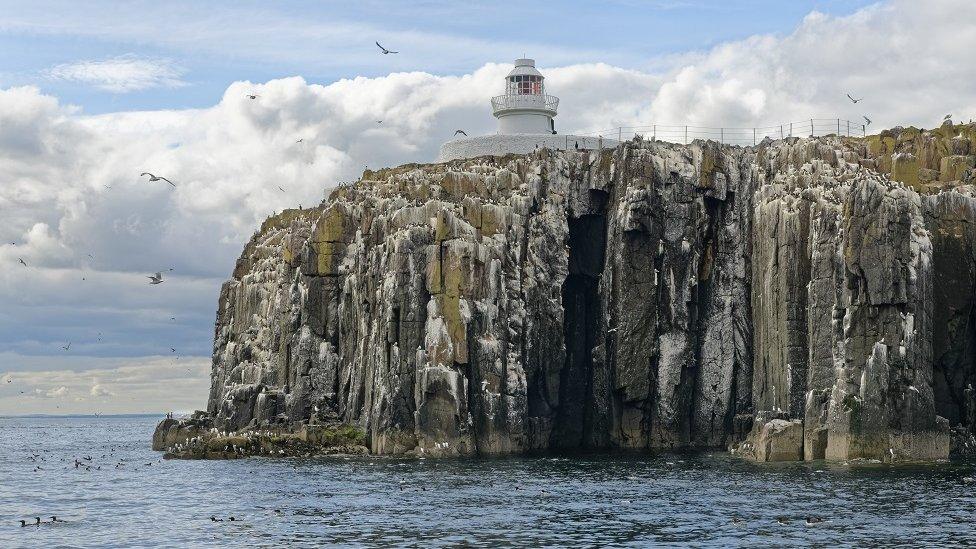Farne Islands and Coquet Island 'may take years to recover' from avian flu
- Published
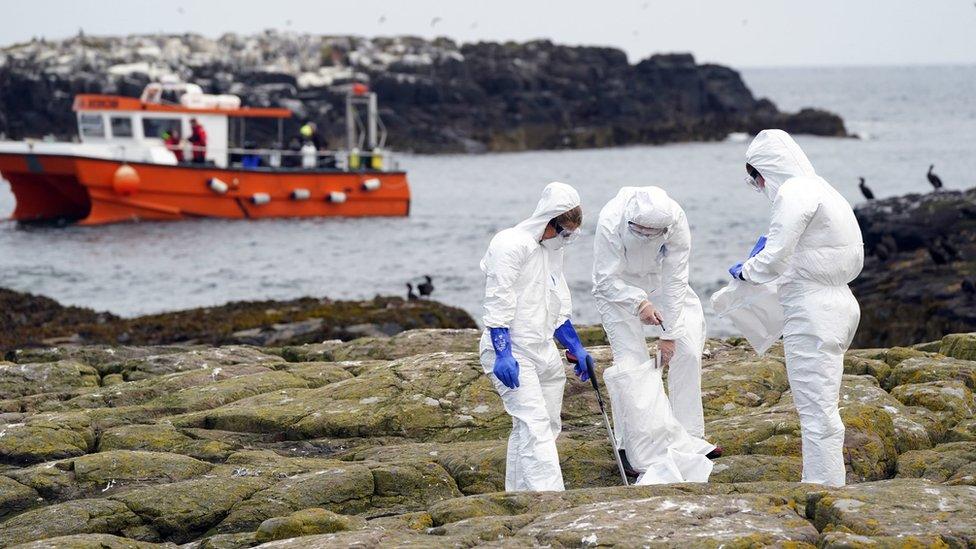
Staff donned protective equipment as they collected dead birds on the Farne Islands
Bird populations off the Northumberland coast could "take years to recover", experts have warned after avian flu ravaged numbers in recent months.
More than 5,000 dead birds have been found at Coquet Island with a similar number at the Farne Islands.
Colonies of roseate, sandwich, arctic and common terns have been affected as well as gulls, kittiwakes and puffins.
Farne Island warden Harriet Read described it as "heart-breaking".
"It hit so many of the species," she told BBC Radio Newcastle.
"On the outer group of islands it was very quick. We suddenly had a lot of dead birds on our hands. It spread like wildfire."
She said they had so far picked up more than 5,000 dead birds of different species with guillemots and kittiwakes "hardest hit".
"All the species on the islands have been affected differently," she said.
"But I would think it would take years to recover from something like this because we have lost quite a lot of this year's breeding adults as well as this year's chicks.
"The silver lining is quite a few have fledged."
'Glimmer of hope'
The Farnes have been closed to the public since last month and Ms Read told BBC Radio Newcastle it was still too soon to know when they would reopen.
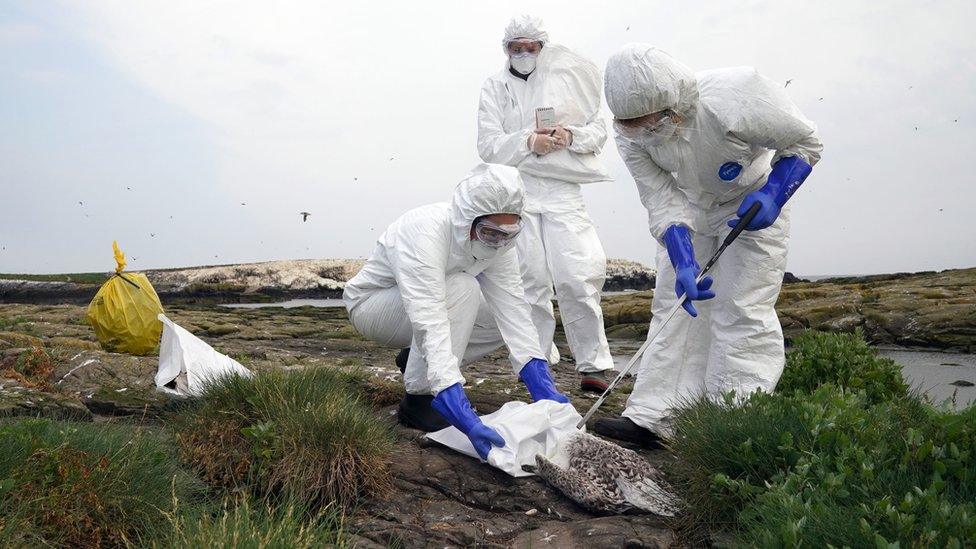
Avian flu hit a number of species on the Farne Islands and Coquet Island
Coquet Island warden Paul Morrison described birds "dying by the hundreds" shortly after initial signs of avian flu were spotted.
He said: "We've just finished clearing the island of dead birds and burying them under licence.
"We are seeing a glimmer of hope with the last few birds leaving the island that managed to avoid this plague.
"We're in the process of disinfecting all the nesting areas, nest boxes, the paths and anything else that could potentially harbour this horrible virus.
"This next year will be very important to study carefully and assess how well or poorly the population is doing in terms of recovery."

Follow BBC North East & Cumbria on Twitter, external, Facebook, external and Instagram, external. Send your story ideas to northeastandcumbria@bbc.co.uk, external.
Related topics
- Published25 July 2022
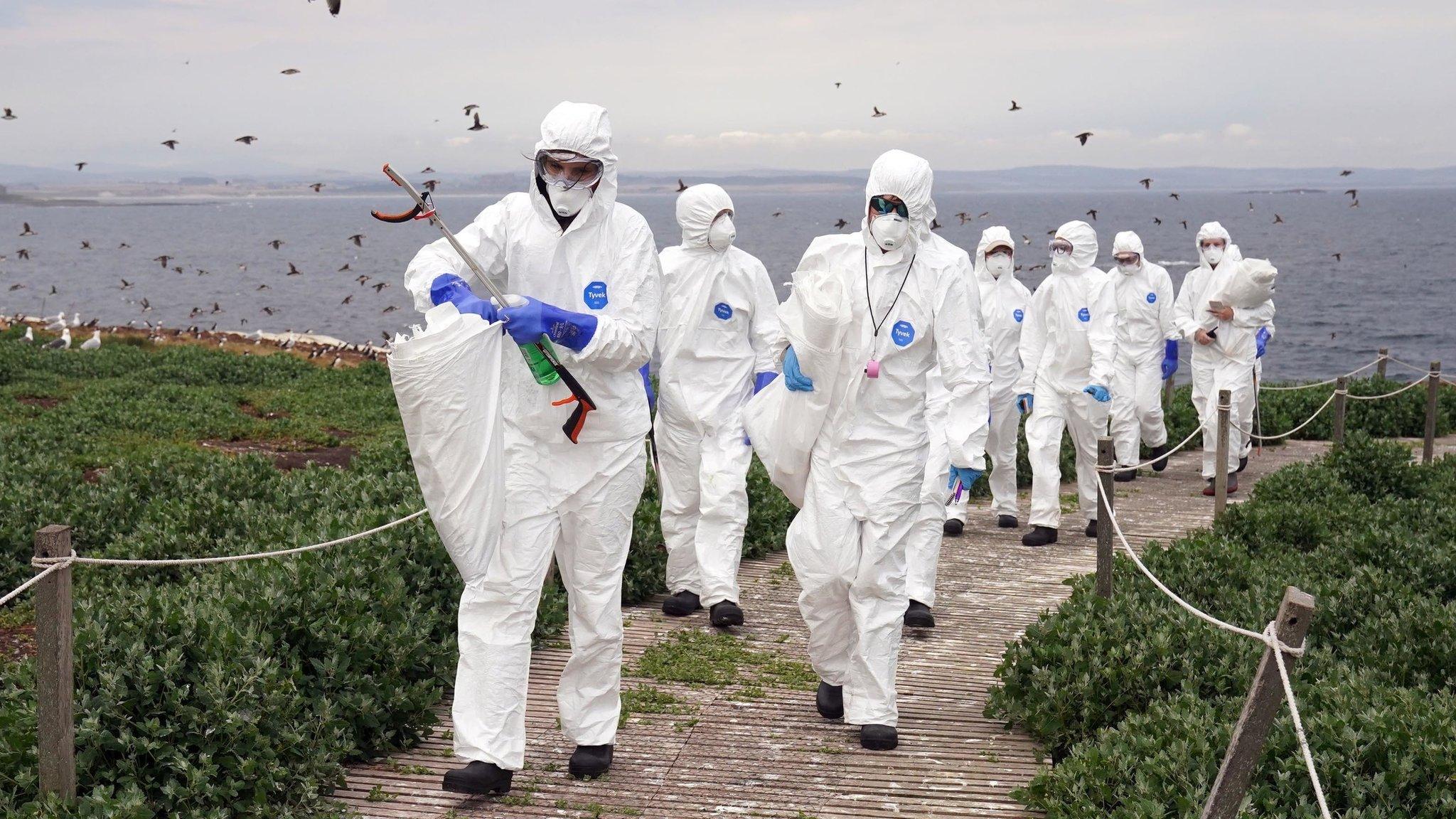
- Published15 July 2022
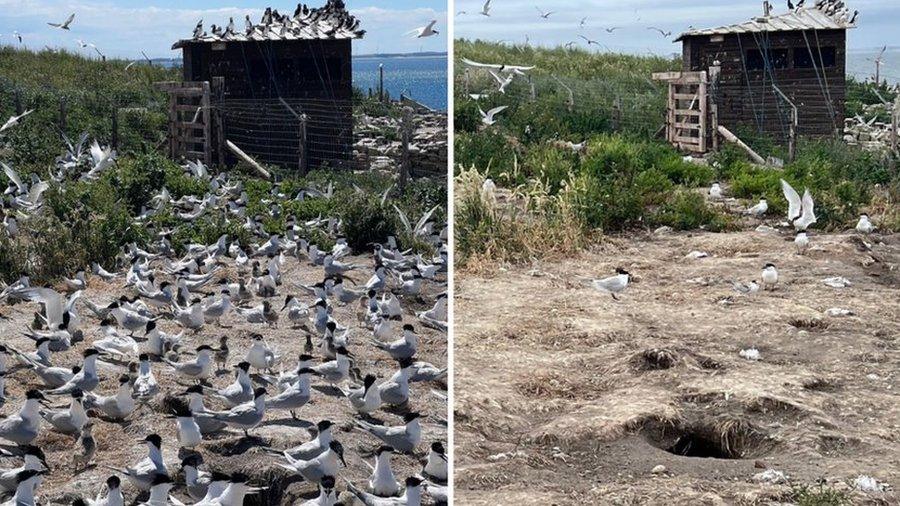
- Published1 July 2022
